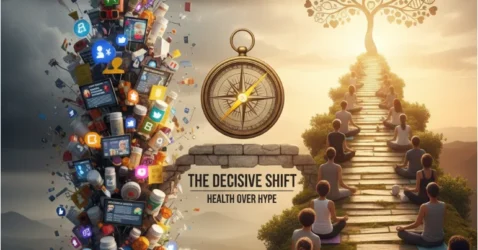Beyond the Obvious: 10 Cancer Symptoms Women Should Never Ignore
It’s an undeniable truth: our bodies are complex and constantly in flux. We experience minor aches, fleeting pains, and temporary changes that usually resolve on their own. However, amid this normal ebb and flow, there are certain signals that demand our full attention. For women, in particular, understanding these subtle but significant cues can be a matter of life and death. While routine checkups and screenings for breast and cervical cancer are vital, many other forms of cancer can go undetected until it’s too late. The key is to become an expert on your own body, recognizing when a change isn’t just a change—it’s a potential warning sign.
The following list outlines ten critical symptoms that, if persistent or unusual, should prompt a conversation with your doctor. Remember, these are not definitive diagnoses of cancer, but rather red flags that warrant investigation. If any of these symptoms last for more than a few weeks, don’t hesitate to seek professional medical advice.
1. Pelvic Pain and Abnormal Menstruation
Most women are familiar with the occasional irregular period or menstrual cramps. But when pelvic pain becomes a persistent, severe issue and is accompanied by significant changes in your menstrual cycle—such as unusually heavy, irregular, or missed periods—it could signal something more serious. These symptoms might indicate uterine, cervical, or ovarian cancer. While they could also point to a non-cancerous condition like endometriosis, they are never something to simply endure.
2. Changes in Bowel and Bladder Habits
Your bathroom habits are often a good indicator of your overall health. Pay close attention if you notice abnormal changes, such as a sudden increase in the frequency of urination, persistent constipation or diarrhea, or blood in your urine or stool. Abdominal pain that accompanies these changes should also be a cause for concern. These can be symptoms of various cancers, including colorectal, ovarian, or bladder cancer.
3. Lumps or Changes in the Breast
This is perhaps one of the most well-known cancer signs, but it’s crucial to be vigilant. Breast cancer can manifest as lumps or dimples that weren’t there before, discoloration of the skin, or nipple discharge. Look out for any swelling, redness, or tenderness that is not related to your normal menstrual cycle. A self-exam should be a regular part of your health routine to spot any new or unusual developments.
4. Extreme and Unexplained Weight Changes
Rapid, unexplained weight loss or gain of ten pounds or more without any changes to your diet or exercise routine is a significant red flag. While weight loss is more commonly associated with cancer, weight gain can also occur. Cancer can severely affect your appetite, leading to a constant feeling of fullness or a complete lack of hunger. Pay attention to these shifts in your eating patterns.
5. Persistent Throat Pain or Difficulty Swallowing
A sore throat or earache that simply won’t go away, especially if you’re a smoker, can be a symptom of lung, throat, or stomach cancer. Another symptom to watch for is the sensation of food getting stuck in your throat. Oral symptoms, such as sores or lesions in the mouth that don’t heal, also require a professional evaluation.
6. Acute and Constant Fatigue
Everyone feels tired sometimes, but if you’re getting plenty of sleep and your lifestyle hasn’t changed, yet you feel profoundly exhausted all the time, it’s time to see a doctor. This kind of persistent fatigue can be a sign of various cancers, including leukemia or lymphoma. It’s a deep, bone-weary exhaustion that doesn’t improve with rest.
7. Frequent Fevers and Night Sweats
If you find yourself with repeated fevers that spike or last for more than a few days, it’s a symptom you shouldn’t ignore. Certain cancers can weaken your immune system, making you more susceptible to infections. This can also manifest as frequent, drenching night sweats that seem to appear out of nowhere.
8. Noticeable Skin Changes
Your skin can tell you a lot about what’s happening inside your body. Watch for jaundice, which presents as a yellowing of the skin and eyes. Also, be diligent about monitoring your moles. If a mole has irregular borders, changes in color, grows larger than a pencil eraser, or becomes asymmetrical, get it checked immediately. New lumps or masses felt beneath the skin are also a cause for concern.
9. Unexplained Bruising
While an occasional bruise is normal, if you find yourself repeatedly and easily bruising in unusual places without any memory of bumping into anything, it could be a sign of a blood-clotting issue. In some cases, it can also be an early indicator of certain blood cancers.
10. Post-Menopausal Uterine Bleeding
For women who have gone through menopause and haven’t had a period in years, any new uterine bleeding is a critical symptom that should be addressed immediately. While perimenopausal women can still have occasional periods, bleeding after full menopause could be a sign of endometrial cancer.
Being proactive about your health is the best defense against cancer. By paying close attention to your body’s signals and not dismissing persistent symptoms, you can empower yourself to seek help early, when treatment is most effective. Your body is talking; are you listening?




















